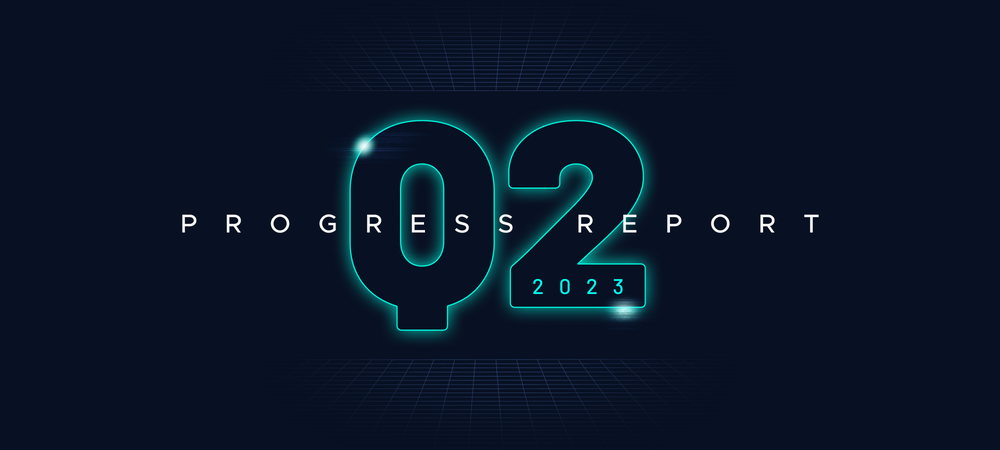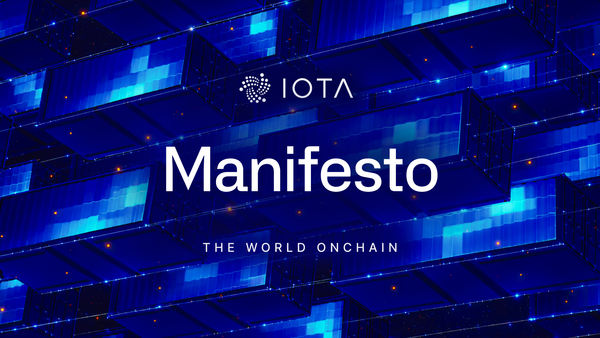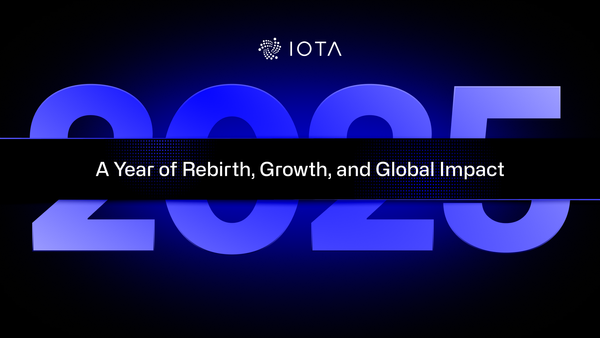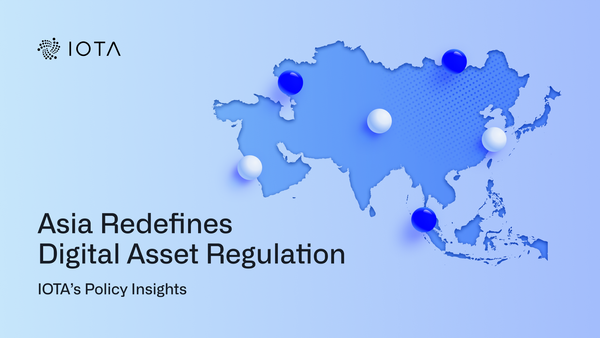Q2 2023 Progress Report
TL;DR:
Our latest quarterly review summarizes the most recent advancements in the IOTA ecosystem. This quarter saw Shimmer developments including the successful launch of the ShimmerEVM Testnet, the Treasures of Shimmer Testnet campaign, and crucial propositions for governance. Additionally, the IOTA Foundation's teams have been making progress in areas such as Core Node Research, Protocol Research, Ledger Research, Tangle Dynamics, Finalization Research, Congestion Control, Incentives, Smart Contracts, Zero-Knowledge Techniques, Applied Cryptography, and more. We also highlight the efforts of the engineering, developer experience, governance, community, and regulatory affairs teams.
The IOTA Foundation and Shimmer teams have been working diligently on various aspects of their respective projects to enhance functionality, research new possibilities, and engage with the community. These advancements and collaborations demonstrate the commitment of the IOTA ecosystem to drive innovation, foster community engagement, and contribute to the growth of distributed ledger technology. This article provides an overview of the highlights and advancements in the IOTA ecosystem during this quarter.
Shimmer Updates
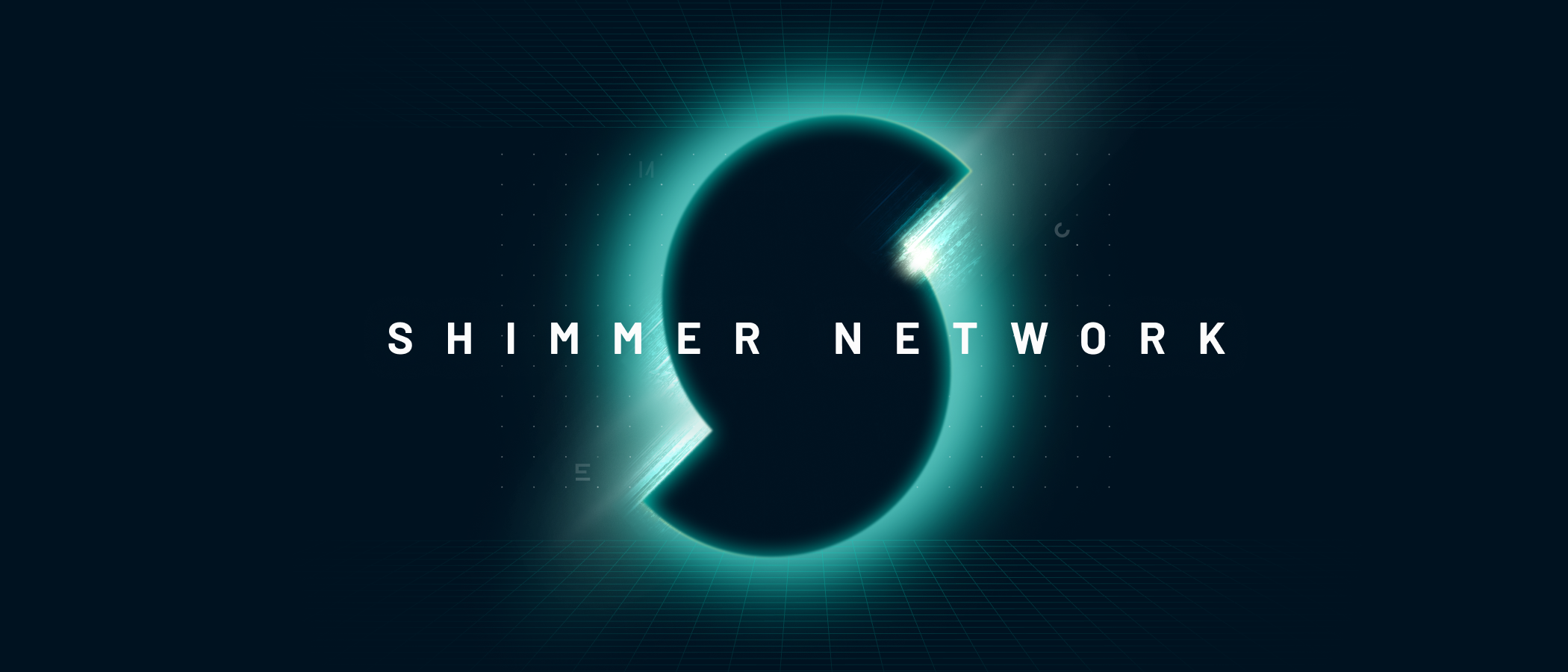
This quarter, the main highlight for Shimmer was the successful launch of the ShimmerEVM Testnet, accompanied by the Treasures of Shimmer Testnet campaign. Additionally, crucial propositions for governance were voted on, paving the way for the network.
Shimmer EVM Testnet Launch and Campaign
Since the launch of the ShimmerEVM Testnet on March 29th, there have been no major issues or necessary resets. Since then, it has processed over 3 million blocks and 15 million transactions, with a peak of 1.8 million transactions in a single day, all with an average block time of around 800 milliseconds.
The Treasures of Shimmer campaign by TEA* contributed significantly to the testnet activity. It attracted a high level of participation, resulting in 10 million transactions. This surge was fueled by 16 projects competing for a share of the 1.8 million $SMR token bounty, which has been paid out. Efforts are focused on integrating feedback from the campaign into finalizing improvements for launching ShimmerEVM on Shimmer. More information can be found in the team’s recent update on Discord.
Shimmer Governance and Vote
Over 98% of the community supported the establishment of two independent committees to manage funds and promote the growth of the Shimmer ecosystem: the Shimmer Community Treasury Grant Committee and the Shimmer Growth Committee.
The Shimmer Community Grant Committee has reviewed over 40 grant proposals, approving more than $300,000 in grants for our ecosystem builders. The recently created Shimmer Growth Committee has also facilitated partnerships and funded vital infrastructure projects for the upcoming ShimmerEVM launch.
In addition, the Governance group is preparing governance processes for the ShimmerEVM, utilizing EVM Smart Contracts. Public community governance meetings are held every Thursday at 4 p.m. CEST on Discord; recordings of these meetings can be found in our YouTube playlist.
IOTA Foundation Updates
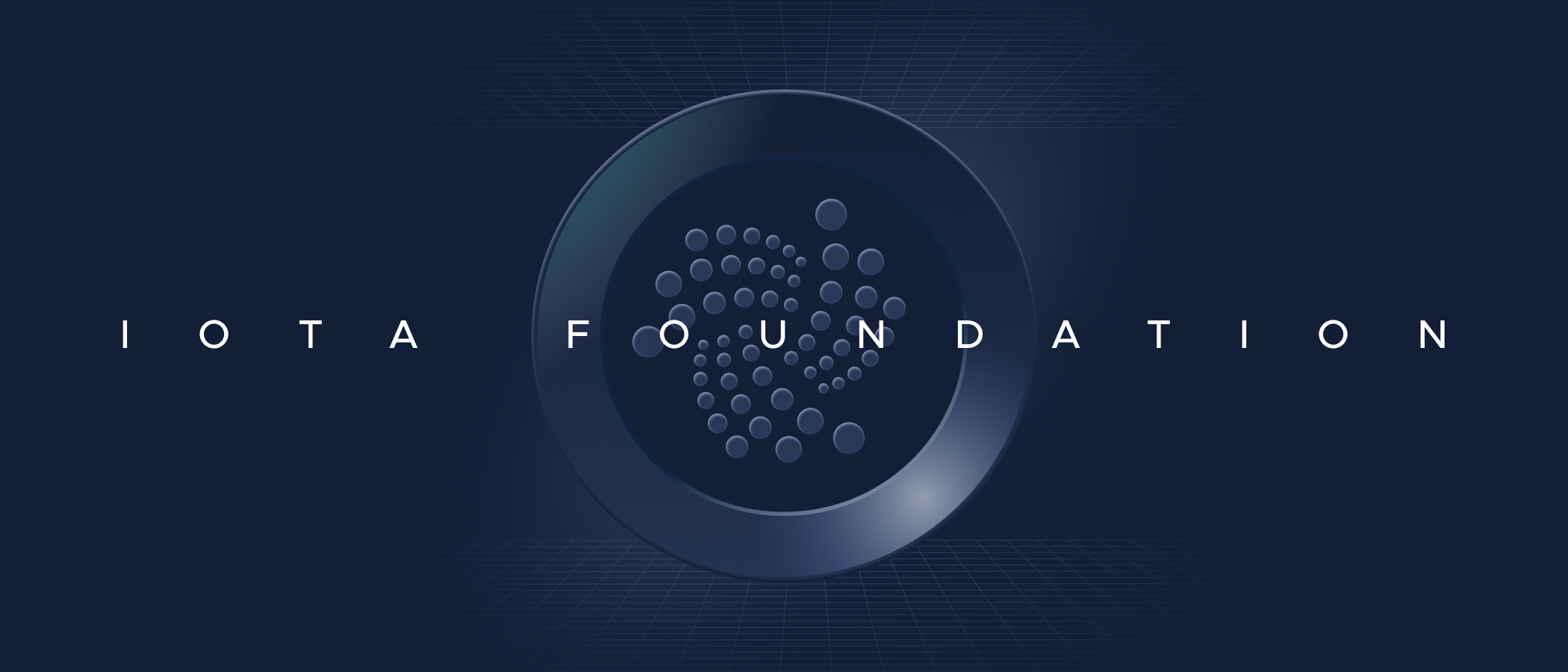
The IOTA Foundation's Research and Engineering departments continued to develop the protocol, while our UX, Touchpoint, and Governance teams created more robust ties with our community. Meanwhile, our Regulatory Affairs, Social Impact, and Sustainability teams have been busy providing a voice for the DLT, blockchain, and crypto industry in answer to the latest regulations.
IOTA Core Node Research
GoShimmer functionality has been transferred to a new node software called iota-core by the Core Node Research team, which is responsible for advancing the IOTA protocol. They made adjustments to confirmation flags and the fork-choice rule based on guidance from the Finalization Research Working Group. They’re also testing an initial implementation of an Account-based ledger for tracking Mana.
Currently, the team is working on enabling staking and delegation of IOTA tokens to validators, implementing Mana calculations and Mana decay for a complete dPoS system. This work incorporates input from the Incentive Taskforce, responsible for developing the new incentive mechanisms and researching game-theoretical and tokenomics-related subjects.
Additionally, the team is developing the IOTA Congestion Control Algorithm (ICCA), a modified congestion control mechanism centered around accounts for protocol usability and accountability. Users’ Mana balance associated with their accounts ensures their fair share of the network, while consensus utilizes weight derived from accounts. The Finalization Research Working Group (responsible for developing the consensus mechanism in the protocol) is investigating the specifics of epochs, committee selection, and rotation.
IOTA Protocol Research
Parameter setting and user experience details for the protocol are being finalized by the Protocol Research team, which is responsible for the design of the fundamental modules in IOTA 2.0. It is also working with engineers and researchers to support the development of the IOTA Core node software.
Two research papers were successfully presented at IEEE ICBC in Dubai in May: “Mitigation of liveness attacks in DAG-based ledgers”, accessible here, and “TangleSim: An Agent-based, Modular Simulator for DAG-based Distributed Ledger Technologies”, available here. The team is also helping organize Beyond the Chains: Workshop on DAG-based DLTs, which will be held in conjunction with the International Congress on Blockchain and Applications in Portugal on 12 and 14 July.
IOTA Ledger Research
Focusing on the functionality of our data and application layers, the Ledger Research team has made significant improvements to various components of the IOTA ledger, including:
The Programmability Working Group, which is tasked with analyzing the feasibility of having programmability support on IOTA Layer 1, has been investigating the implications of deterministic program execution on UTXO-based blockchains.
The Tangle Dynamics Working Group, responsible for studying the structural properties of the Tangle and its relation to the other components and performance properties of our protocol, has had two of their research papers accepted for presentation at this year's International Congress on Blockchain and Applications. These soon-to-be-available papers contribute valuable insights into fairness in DAG-based DLTs.
The Working Group’s presentation about DAG-based DLTs was positively received at the UZH Blockchain Lecture Note Series in April. An academic partner, IMT Brest, has recently appointed a dedicated Postdoctoral Researcher focused on studying the theoretical aspects of Tangle dynamics: The Working Group always welcomes academic collaborations to further their research, and interested parties can contact us via [email protected] or in our tanglemath channel on Discord.
The Finalization Research Working Group, responsible for developing the consensus mechanism in the protocol, made progress in implementing the confirmation and finality gadget, as well as the Slot Commitment Chain switching rule. These developments have transformed theoretical conditions (which were designed in the previous months) into practical applications. The Working Group has also demonstrated security guarantees for the confirmation and finalization flags under the synchronous and asynchronous network models, which enables the team to confidently proceed with implementation and utilize real-world scenarios. Moreover, the group has elaborated on the technical details of the committee selection procedure to ensure a smooth rotation of validator committees.
The Congestion Control Working Group, responsible for designing the access scheme for the protocol, has finalized its proposal based on a Mana burn filter and a round-robin scheduler. The group is currently working on documentation and facilitating implementation. Additionally, algorithm parameters are being set up with the help of the TangleSim simulator. Finally, the journal paper “Improving Quality of Service for Users of Leaderless DAG-based Distributed Ledgers” has been accepted for publication in the Association of Computing Machinery’s Distributed Ledger Technology journal.
Following the incentives mechanism designed in the past months, the implementation details of staking and delegation have mostly been finalized by the Incentives Working Group (responsible for developing the new incentives mechanism and research subjects related to game theory and tokenomics). Particularly, formulas in the upcoming whitepaper are being modified to be performed as fixed point arithmetics calculations in the nodes. This is crucial to prevent rounding divergences involving floating point operations between nodes, which could cause forks and other divergences among different nodes with different architectures. Additionally, the accounts' design was optimized to enable shared security between layers: funds in L2 SC chains can also contribute to the L1 voting power via delegation and receive Mana rewards, while still participating in L2 (and possible DeFi applications).
The IOTA Smart Contract (ISC) Consensus Working Group, responsible for formally describing and refining the ISC consensus and related algorithms, recently completed a successful public launch in the Shimmer EVM Testnet. The Treasures of Shimmer campaign provided valuable insights into ISC performance under continuous load and attacks. The Working Group has made improvements to the consensus protocol, particularly in memory management while ensuring compatibility with the existing codebase.
The Zero-Knowledge (ZK) Working Group, which is responsible for investigating ZK techniques and solutions for scalability and privacy-related use cases, has finalized a report on the integration of Zero Knowledge Proof providers into the IOTA protocol. Building on this, the group has started work on another report to address the questions "What defines zk-friendliness?" and "What key characteristics contribute to the zk-friendliness of a smart contract virtual machine?". We’ll announce the report’s publication details soon.
IOTA Task Forces
IOTA’s various task forces have also made significant improvements, specifically:
The Applied Cryptography Taskforce, responsible for the implementation and use of cryptographic algorithms, worked on a significant Stronghold security upgrade to be applied to the next release of the Firefly wallet. This includes improved overall code quality and security and added support for the Secp256k1 ECDSA signature algorithm and related algorithms.
The Accounts Taskforce, responsible for designing the mechanisms of Mana and staking for IOTA 2.0, worked on Tangle Improvement Proposals (TIPs) for the IOTA 2.0 ledger that specify the workings of Mana, staking, and delegation as well as their interplay with accounts. These TIPs are in development and will be shared shortly. Existing TIPs for Stardust are also being updated to be compatible with Mana and staking in IOTA 2.0.
The EBSI Taskforce, responsible for assisting the IOTA Foundation’s participation in the EU Blockchain Pre-Commercial Procurement in research-related matters, is progressing with its work on Phase 2B as outlined in the tender.
IOTA Engineering
IOTA Core Team: The development of staking, delegation, and Mana calculations is currently in progress, alongside the implementation of an online protocol upgrade mechanism. Additionally, a core and event API is being developed to facilitate the consumption of Account-related information and data by various tooling systems.
Tooling: The team has completed the final round of improvements for the Tangle Explorer, which has been released as version v3.2.0. Improvements include the addition of support for displaying participating "voting events" on the address page, improvements to statistics charts, token distribution statistics, and increased page loading speed in certain scenarios, to name a few. Subsequently, the team has shifted to assisting Firefly wallet efforts.
IOTA Software Development Kit (SDK): The team has been working towards the first stable release of the IOTA SDK. This new project is a refactored and improved combination of iota.rs and wallet.rs, which will be deprecated after the SDK release. Still written in Rust, it will be accompanied by Nodejs, Wasm, and Python bindings, as well as a CLI wallet.
Identity: The Identity Team is currently finalizing the shift to the JSON Web Token (JWT) format for credentials and presentations, while also focusing on stabilizing the API of the Domain Name Verification, which was delivered earlier this quarter and is also being aligned with the new JWT data format. Subsequently, the team's attention will be directed towards the development and improvement of the Wiki and educational resources.
TIPs: The team has continued to improve the quality and wording of TIPs with the help of community contributors. There is an ongoing conversation in the TIP discussion forum about a proposed on-chain metadata encoding standard that would help application developers interpret on-chain data throughout the ecosystem.
IOTA Developer Experience
Wiki: Efforts to merge the IOTA wiki into a single mono repository are being made by the Developer Experience Team, enabling the utilization of a more standardized Docusaurus build. This implementation facilitates the seamless addition of features and enhancements to the wiki. Furthermore, a new content plan is currently being devised to unify Shimmer and IOTA content within the wiki.
EVM tooling: The EVM toolkit, supporting developer interaction with smart contracts, underwent a comprehensive redevelopment to extend support for the ShimmerEVM Testnet. This includes a redesigned and code-refactored UI/UX, a transition to SvelteKit, Metamask being more closely implemented (Add to MM-Button, auto connect), implementing IRC27/IRC30 support as well as a button to withdraw all funds from an account, and user preferences are now stored/loaded.
Community and Ecosystem
IOTA Governance: Work is underway to establish specifications and technical solutions that will facilitate access for the IOTA community to the 50Ti IOTA Community Treasury through smart contracts. The initial implementation of this feature is expected to be introduced in the ShimmerEVM.
Community Team: Responsible for fostering engagement, growth, and collaboration within the community and ecosystem, the Community and Ecosystem Team built on the success of the Treasures of Shimmer campaign by introducing the Shimmer CommunityChampion initiative supported by the Tangle Ecosystem Association. Community members can take part in a series of quests and tasks on Zealy that expands their knowledge of Shimmer and empowers them to contribute to the ecosystem. As participants progress through the Zealy board and earn Discord roles, their expertise is acknowledged, granting them access to exclusive community opportunities. The initiative also includes a leaderboard, and those who complete the entire Zealy board receive a time-locked NFT, symbolizing their commitment to the Shimmer community.
Touchpoint: In preparation for the Shimmer testnet launch and mainnet rollout, the Touchpoint Team (responsible for Ecosystem Development and Builder Support programs) prioritized inter-project collaboration and alignment. They facilitated dialogue between builders, discussed infrastructure requirements, and validated interest in potential partners (like bridges and oracles).
Cold outreach targeted projects from different ecosystems, primarily DeFi and Gaming, to explore expansion opportunities. Around 10 projects were onboarded and they have active conversations with dozens more.
The Touchpoint team has ramped up weekly events inside its Discord server, including demos, expert sessions, and weekly learnings. This has encouraged connections among participants and fostered knowledge sharing. Plans include expanding builder support and funding programs and partnerships to better help projects accelerate and grow their impact at all stages. If your project is interested in joining the Touchpoint program, you can apply here.
IOTA Regulatory Affairs
This quarter, Mariana De La Roche joined the Board of Directors of the International Association of Trusted Blockchain Applications (INATBA) and, together with the IOTA Foundation's Laura Kajtazi, the Expert Panel of the European Blockchain Observatory and Forum (EUBOF).
Our regulatory affairs team leads the IOTA Foundation’s work in being the voice of the DLT/blockchain industry on international regulatory matters. This included:
- A reply involving several international associations to a consultation by the Autorité de Contrôle Prudentiel et de Résolution (ACPR) on the Decentralized Finance ecosystem.
- A response to a consultation by the Abu Dhabi Global Market for a legislative framework for DLT foundations.
- A position paper on the EU’s Anti-Money Laundering Regulations, highlighting industry concerns about some of the articles proposed by the European Commission and Parliament.
- Contributions to a position paper by the European Crypto Initiative on the EU’s Data Act.
- Preparation (with INATBA’s Finance Working Group) of a report and proposal for a definition of DeFi based on expert and policymaker input based on a 141-respondent survey.
- Four roundtable discussions between industry experts and policymakers, with the results published in the report "Bridging the Gap Between Technology and Regulation with Dialogue."
- A roundtable on the future of DeFi was held with EUBOF and the European Blockchain Association (recording available here).
- Episodes of the Let’s Talk About Regulation series on GPDR, Regulating Decentralized Finance, How to Navigate the Compliance Landscape, and DAC8 & CARF.
Other notable events that the IOTA Foundation participated in include DeFi is Female, Blockchain @ HTW, Brussels Blockchain Week, Web3 Summit and more.
IOTA Social Impact and Sustainability
The Social Impact and Sustainability team engaged in the BC100+ initiative in conjunction with INATBA, scheduled for launch in the upcoming quarter.
As part of the Regulatory Affairs Team’s mandate, several articles were published this quarter. On the subject of tokenization, "How can blockchain help in government?" was published on the Apolitical website as well as a research paper in collaboration with EUBOF. An overview of Blockchain for Climate Action and Sustainability was published with BC4EU and another Apolitical report summary focused on a social impact model designed for small and medium-sized blockchain projects. Finally, an INATBA podcast series on ReFi and financial inclusion was launched, along with an advocacy video featuring industry leaders advocating for social impact and sustainability
Team members spoke at events such as the Future of Health (Min.40:42), the Alternative Finance Forum 2023 (Min. 2:36:05), Blockchain4Climate & Blockchain4SDGs, the European Blockchain Convention, the Positive Blockchain 5 Anniversary (Min. 1:26.00).
As part of CHAISE, a project co-funded by the European Union’s Erasmus+ Program, the IOTA Foundation is leading the first series of training pilot sessions based on a modular vocational education and training program for blockchain. The first pilot training sessions have taken place, and more are planned.
Otherwise, collaboration continues on projects involving the IOTA Foundation, including SUSEE and +CityXchange.
Assembly
The sixth round of staking for Assembly has begun, with 11.7 billion tokens having been allocated to stakers at the point of publication of this blog post. The focus remains on releasing the production version of the ShimmerEVM and following multi-chain interoperability.
Coordicide
As mentioned several times in this report, several teams have further progressed in porting and implementing features from the GoShimmer research prototype to the Hornet node software. Progress is made at the expected pace, fully within our expectations.
Looking ahead
In conclusion, this quarter has been filled with significant milestones and achievements for the IOTA ecosystem. The successful launch of the ShimmerEVM Testnet and the engaging Treasures of Shimmer campaign showcased the network's capabilities and garnered engaged participation. Furthermore, crucial progress has been made in governance, research, and engineering, solidifying the foundation for future advancements. With a thriving community and dedicated teams, the IOTA ecosystem is poised for continued growth and innovation in the coming months. Exciting times lie ahead!

